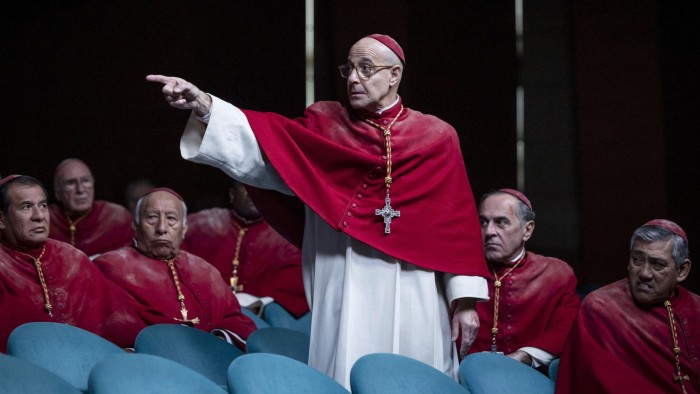Unlock the Editor’s Digest for free
Roula Khalaf, Editor of the FT, selects her favourite stories in this weekly newsletter.
Hackers are a healthily sceptical crowd. As soon as they scrutinise a system, their instinct is to hack it. But even the most devious would struggle to hack one of the most secure voting systems yet devised: the method for selecting a new pope. After almost two millennia, the Catholic Church has come close to perfecting the art, according to Bruce Schneier, author of A Hacker’s Mind. What can we learn from the process?
We should first acknowledge that, like all elections, papal conclaves are contentious. There is often controversy as the likely candidates, or papabili as Vatican watchers call them, discreetly jostle for the favour of their fellow cardinals. The impression conveyed in Conclave, the best-selling novel by Robert Harris that was turned into an Oscar-winning film, is that papal elections are rife with intrigue, skulduggery and backroom deals. Historians suggest this is far from pure fiction.
Next month’s election has already stirred strong emotions, with the Maga Catholics in the US calling for a more “Trump-like pope” to reject the liberalism of the late Pope Francis. However, six of the 10 American cardinals who can vote were appointed by Francis and seem more attuned to his approach. In total, the Argentine pope appointed 108 of the 135 cardinals eligible to vote, which may strongly sway the outcome.
Even if controversies swirl about the direction of the Catholic Church and the composition of the all-male electoral college, the voting process itself is relatively uncontentious, having been codified over centuries. The voting cardinals, who come from all over the world and remain secluded during the conclave, write the name of their preferred candidate on a card and swear an oath at the altar of the Sistine Chapel every time they cast their ballot. Each round of voting is overseen by three randomly selected scrutineers. The sleeves of the cardinals’ choir dress are translucent lace (presumably to avoid any sleight of hand). Every vote is announced, no matter how time consuming. Several rounds are often needed to reach a definitive result.
Schneier suggests three lessons can be drawn from the papal process. First, every step of the electoral system is transparent to all participants even if the votes are secret. Second, small and simple elections among known voters are less vulnerable to manipulation. Third, when a selection process evolves over a long time it can become “surprisingly good”.
There are plenty of small-scale elections that can be conducted in similar, if less elaborate, ways but secure votes are difficult at large scale, particularly when technology is involved. “There is no such thing as secure voting that is purely digital,” Schneier says. That point is proved each year at the Def Con conference, where hackers regularly expose the flaws of the latest US digital voting systems.
The challenge of holding secure ballots is particularly acute in the US given the scale of elections and the range of issues presented to voters. That makes automation essential even if risky, according to Matt Blaze, a professor at Georgetown University who researches electoral integrity.
However, Blaze suggests there is a way to minimise automation risks. Physical ballot papers (including postal votes) remain essential but they can be recorded and counted electronically using optical scan technology. That automation process can then be checked using a sampling technique known as risk-limiting audits. “I am optimistic that we can have very high-integrity elections even with the monstrous ballots we have in the US,” Blaze tells me.
There are far broader threats to democracy than imperfect voting mechanisms: rabble-rousing politicians such as Donald Trump who refuse to accept legitimate results; AI-enabled manipulation and disinformation; and foreign interference, among others. But, even here, the history of papal elections can be instructive given how adaptive they have been. “Papal conclaves do everything they can to ensure that the people voting and the people observing think the process is fair. Democracies have a lot to learn from this,” says Gina Neff, executive director of the Minderoo Centre for Technology and Democracy.
Over many centuries, papal contests have been pockmarked by bribery, intimidation, riots, schisms and extended wrangling: the papal election of 1268 lasted two years and nine months. It has taken good faith, constant adaptation and effective verification mechanisms to improve the process. With luck, hackers can help the rest of us get there faster today by flagging risks and proposing safer solutions in voting systems around the world.
Read the full article here




